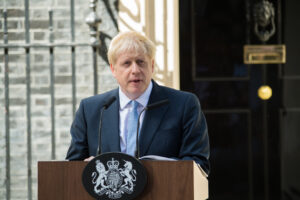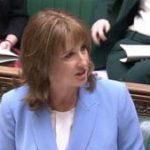
Boris Johnson will try to reboot his government tomorrow with a series of post-Brexit reforms designed to boost the economy and reunite the coalition of voters who brought him to power three years ago.
In his last chance to implement significant legislative reform before the next election, Johnson will announce measures designed to capitalise on Britain’s departure from the European Union, update the planning system and improve standards in schools.
He will detail plans to remove hundreds of pieces of EU law from the statute book, cut regulations for small businesses and remove environmental restrictions that can delay or prevent infrastructure projects.
The Treasury will outline proposals to open up more than £10 billion of UK investment through a post-Brexit overhaul of the insurance industry. It will allow insurance companies to invest in long-term growth projects such as renewable energy, which are banned under EU rules brought in after the 2008 financial crisis.
Government figures said the prime minister wanted to use the Queen’s Speech tomorrow to “move on” from last week’s local election results with policies to appeal to “blue wall” voters in the south of England, who deserted the party for the Liberal Democrats.
This will include plans to curtail the power of big housing developers in the planning process and give residents the right to dictate the style of developments affecting their area. Ministers will also try to create a wedge between the Tories and Labour by promising a bill of rights making it easier for the courts to deport foreigners convicted of criminal offences in the UK.
There are expected to be more than 30 bills in the Queen’s Speech, including seven paving the way for post-Brexit reforms in areas such as gene editing, data protection and trade policy.
“The central aim is to remove barriers that are holding back the economy while promoting new areas of growth,” a government source said. “We need to use this as an opportunity to demonstrate that we understand the public’s priorities.”
However, as fears grow in cabinet about the cost-of-living crisis, senior Conservatives warned yesterday that Johnson was not secure after the party lost 487 seats and control of 11 councils.
Damian Green, leader of the influential One Nation group of Conservative MPs, wrote in The Sunday Telegraph that the party must “rediscover the virtues that appeal to natural Conservatives in strong Conservative areas”, including reducing the tax burden on those struggling with the cost of living.
A cabinet minister told The Times that the election results meant the Queen’s Speech would need to be followed swiftly by measures to cut taxes and reduce the impact on the cost of living. “We clearly need to do more on tax to appeal to voters in the south,” they said. “Rishi [Sunak, the chancellor] has presided over his last tax rise — not because he’s going to be sacked but because we need to show we’re listening. Tax rises are fundamentally against everything that we stand for.”
Another senior Tory MP said that many colleagues had not made up their minds on whether Johnson could turn the party’s fortunes around. “That’s the big question a lot of us are struggling with,” they said.
Latest has shown an increasing threat to the government from the cost-of-living crisis and last week’s Bank of England warning that the UK may be heading for a recession.
The YouGov survey found that more than 60 per cent of voters would blame the government if the country entered a recession, and 80 per cent expect further interest rate rises.
Ministers will outline measures to stimulate growth. Sunak is expected to announce another reform of business rates, and there will be changes to allow workers in the gig economy to work more hours by ending the exclusivity contracts that tie them to employers.
Johnson is also expected to highlight education reform with a bill to reduce inequalities in funding. There will be a duty on local authorities to support home-schooling families. Schools in England will have to publish an attendance policy, with registers for those not in class to help to identify children not receiving full-time education.
He will not, however, introduce legislation to overrule the Northern Ireland Brexit deal, after Sinn Fein became the largest party. Ministers will first prioritise a negotiated deal with Brussels.
Read more:
Boris Johnson removes EU laws in bid to boost post-Brexit economy






